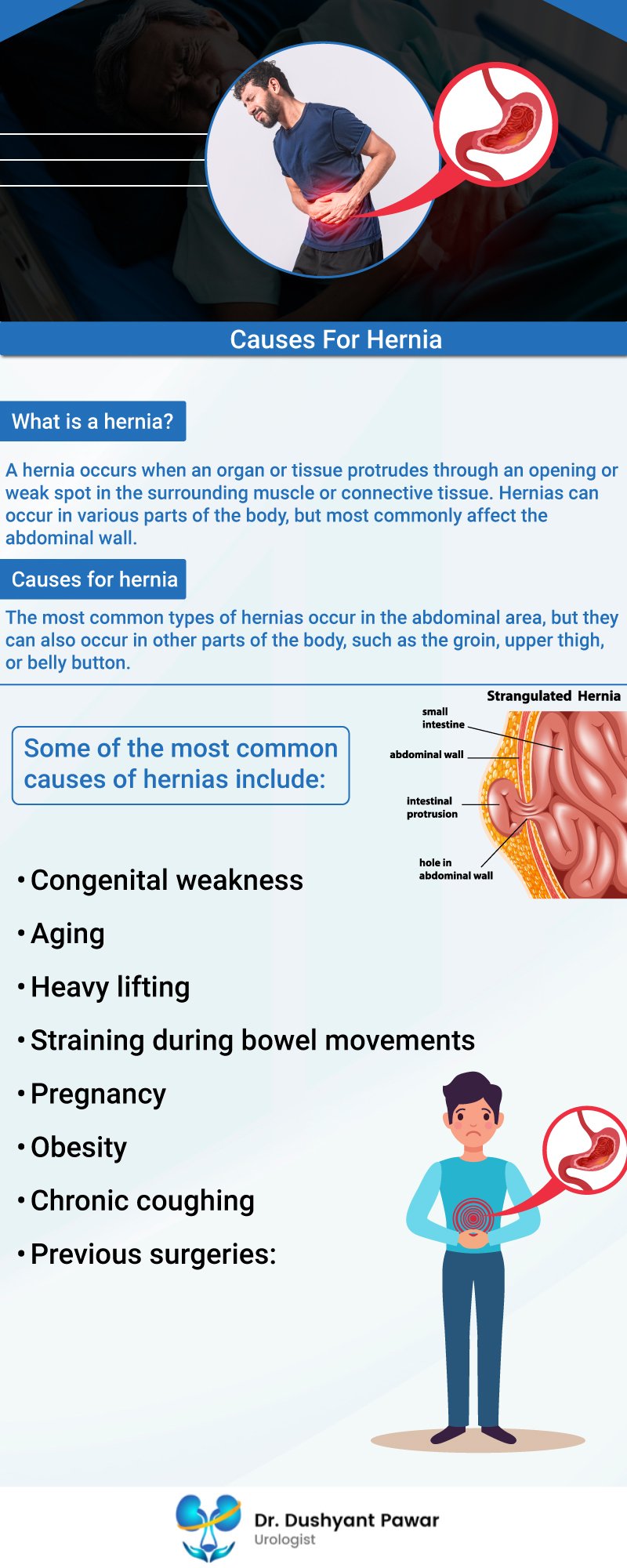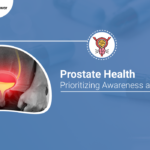Hernia is a common medical condition that occurs when an internal organ, such as the intestine or bladder, protrudes through a weakened area in the surrounding muscle or tissue. The condition can be caused by a variety of factors, including genetics, age, and physical strain. There are several types of hernia, including inguinal, femoral, umbilical, and hiatal hernias, each with its own set of symptoms and treatment options.
Common symptoms of hernia include pain or discomfort, swelling, and a visible bulge. Treatment for hernia may involve lifestyle changes, such as weight loss and exercise, or surgical repair to reinforce the weakened area and prevent further complications. In this blog post, we will explore the causes, types, symptoms, and treatment options for hernia, providing readers with a comprehensive overview of this common medical condition.
Table of Contents
What is a hernia?
A hernia occurs when an organ or tissue protrudes through an opening or weak spot in the surrounding muscle or connective tissue. Hernias can occur in various parts of the body, but most commonly affect the abdominal wall.
In an abdominal hernia, a section of the intestine or other abdominal contents pushes through a weakened area of the abdominal wall, causing a bulge or lump that can be felt or seen.

Causes for hernia
A hernia occurs when an organ or tissue pushes through a weak spot in the surrounding muscle or connective tissue. Hernias can cause discomfort or pain and may require medical attention if they become trapped or strangulated, which can lead to tissue damage and potentially life-threatening complications. The most common types of hernias occur in the abdominal area, but they can also occur in other parts of the body, such as the groin, upper thigh, or belly button.
Some of the most common causes of hernias include:
- Congenital weakness: Some people are born with a weakened abdominal wall or connective tissue, which increases their risk of developing a hernia.
- Aging: As our age increases, our muscles, and connective tissue can weaken, making us more susceptible to hernias.
- Heavy lifting: Lifting heavy objects can put a strain on the muscles in the abdomen, leading to a hernia.
- Straining during bowel movements: Chronic constipation or straining during bowel movements can also increase the risk of developing a hernia.
- Pregnancy: The extra weight and pressure of pregnancy can weaken the abdominal muscles, making pregnant women more susceptible to hernias.
- Obesity: Excess weight can put pressure on the abdominal muscles, leading to a higher risk of hernias.
- Chronic coughing: Frequent or persistent coughing can put pressure on the abdominal muscles and increase the risk of hernias.
- Previous surgeries: Surgeries in the abdominal area can weaken the muscles and increase the risk of hernias.
It’s important to note that hernias can also occur without any specific cause, especially in people who have a family history of hernias or have a medical condition that causes weakened muscles or connective tissue.
Types of hernia
There are different types of hernias, including inguinal hernias, femoral hernias, umbilical hernias, and hiatal hernias, each with its own unique characteristics and treatment options.
Symptoms of hernia
The symptoms of a hernia can vary depending on the location and severity of the hernia. Some common symptoms of a hernia include:
- Bulge or lump: A visible bulge or lump is a common symptom of a hernia. The bulge may be more noticeable when you’re standing up or bearing down.
- Pain or discomfort: You may experience pain or discomfort, particularly when you lift something heavy, cough, or strain during a bowel movement.
- Weakness or pressure: You may feel a general sense of weakness or pressure in the area of the hernia.
- Burning or aching sensation: You may experience a burning or aching sensation in the area of the hernia, particularly after long periods of standing or physical activity.
- Nausea or vomiting: In rare cases, a hernia can cause nausea or vomiting, particularly if it is obstructing the digestive tract.
It is important to note that some people with hernias do not experience any symptoms at all. If you suspect that you have a hernia, it’s important to see a doctor for a proper diagnosis and treatment.
Treatment of hernia
The treatment of a hernia depends on its size and severity, as well as the symptoms experienced by the patient. In some cases, small hernias may not require treatment, but larger ones usually require surgical repair to prevent complications such as strangulation or bowel obstruction.
Some non-surgical approaches that may be recommended by doctors include:
- Lifestyle modifications: This includes avoiding heavy lifting, maintaining a healthy weight, and avoiding activities that may put pressure on the hernia.
- Wearing a supportive device: Wearing a truss or binder may help to support the hernia and relieve discomfort.
Surgical repair is usually recommended for larger hernias or those that are causing severe symptoms. The two main types of hernia repair surgery are:
- Open hernia repair: This involves making an incision near the hernia, pushing the protruding tissue back into the abdominal cavity, and strengthening the muscle wall with a mesh patch.
- Laparoscopic hernia repair: This minimally invasive procedure involves making several small incisions in the abdomen, inserting a small camera and surgical instruments, and repairing the hernia with a mesh patch.
It is important to follow your doctor’s advice regarding the treatment of a hernia and to seek medical attention promptly if you experience any symptoms such as pain, swelling, or difficulty with bowel movements.
Conclusion
In conclusion, hernias are a common medical condition that can be caused by a variety of factors. It is important to recognize the symptoms of hernias and seek medical attention if you suspect you may have one. With proper treatment and lifestyle changes, many hernias can be effectively managed and prevented from worsening. If you are looking for the best Urologist, look no further than Dr. Dushyant Pawar. He is the most reliable doctors available across India. He is known for treating his patients with utmost care and will provide the most suitable treatment. Contact him right away for best-in-class treatment for your issues!



